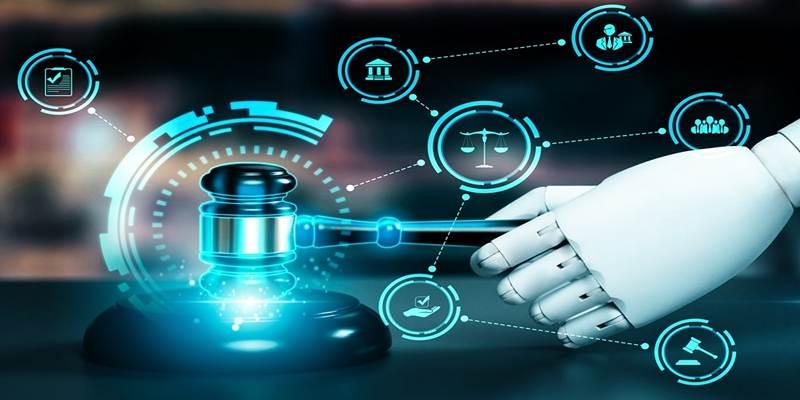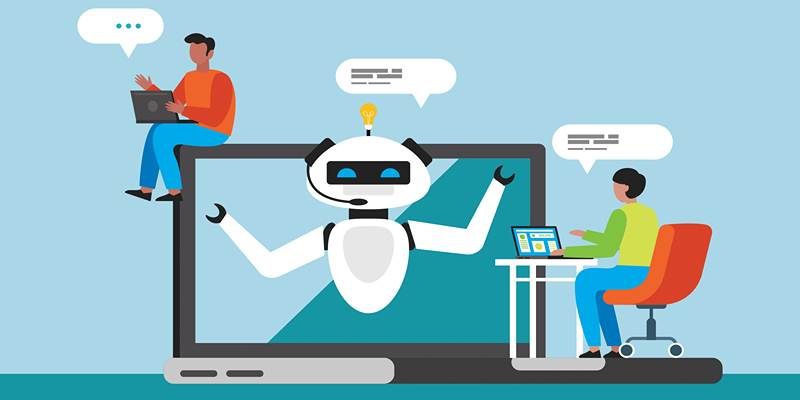The legal industry is changing. With the help of artificial intelligence (AI), law firms and in-house legal teams are becoming more efficient and accurate in their work. Tasks that once took hours or even days can now be done in minutes using smart legal tech tools. From reviewing documents to predicting case outcomes, AI is transforming how lawyers operate. This post explores how AI supports legal teams, improves workflow, and reduces time spent on repetitive tasks.
What Is AI in the Legal Industry?
In the law field, AI means using computers to do work that a person would normally do. These computers have been taught to understand legal language, look at papers, and give useful information.
Some of the main uses of AI in law include:
- Document review and contract analysis
- Legal research
- Predictive analytics
- Case outcome prediction
- Compliance monitoring
- Automating repetitive tasks
AI helps legal teams manage large amounts of information quickly and accurately. It allows lawyers to focus more on strategy and client relationships.
How AI Supports Legal Teams in Daily Work

AI is not replacing lawyers—it’s helping them do their jobs better and faster. Here's how AI makes a difference in day-to-day legal work.
Faster Document Review and Analysis
One of the most time-consuming tasks in the legal world is reviewing documents. Legal teams often go through thousands of pages of contracts, emails, and reports. AI tools can scan, analyze, and summarize legal documents much faster than a human can. These tools highlight important information and flag risks or missing clauses.
Benefits include:
- Saves hours of manual work
- Reduces the chance of missing important details
- Improves accuracy and consistency
Smarter Legal Research
Smarter Legal research is another area where AI shines. Traditionally, lawyers had to spend a lot of time reading case laws and legal articles. With AI-powered search engines, legal teams can now get accurate results in seconds. These tools use natural language processing (NLP) to understand what a lawyer is looking for, even if the query isn’t perfectly worded.
What this means for legal teams:
- Faster access to relevant cases and laws
- Better legal arguments and strategies
- More time to focus on clients
Contract Management and Automation
AI can help with drafting, managing, and reviewing contracts. Legal tech platforms allow teams to automate contract creation by using templates and intelligent data input. Once a contract is in the system, AI can track its lifecycle, flag deadlines, and even send reminders.
This results in:
- Better contract organization
- Fewer errors or missed deadlines
- Streamlined approval processes
Using AI for Case Predictions and Risk Assessment
One of the most exciting uses of AI in law is predictive analytics. These systems analyze past case data to estimate the outcome of ongoing cases.
Before going to trial, lawyers can use AI to:
- Predict the likelihood of winning or losing a case
- Understand how long the case might take
- Evaluate the cost and risk involved
This information helps clients make smarter decisions about settling or proceeding with litigation.
AI Tools That Are Popular in the Legal Field
Many legal tech companies offer AI-powered tools that support different areas of legal work. Some popular tools include:
- ROSS Intelligence – For legal research using NLP
- Kira Systems – For contract review and analysis
- Luminance – For document analysis and risk detection
- LexisNexis and Westlaw Edge – For fast, AI-enhanced legal research
- LawGeex – For automated contract review
These tools are designed to fit into the daily workflows of legal professionals, saving time and improving the quality of their work.
Use Cases Across Industries
Legal AI is being adopted in a wide range of sectors:
- Banking and Finance: For contract reviews and regulatory compliance
- Healthcare: To handle patient privacy agreements and compliance with HIPAA
- Technology Firms: To manage data privacy, IP law, and international regulations
- Retail and Manufacturing: For supplier contract automation and risk assessments
In each of these industries, AI tools are helping legal teams reduce legal exposure and ensure smoother operations.
Benefits of Using AI in Law Firms and Legal Departments

AI can bring many advantages to legal professionals, whether they work in large law firms or small legal teams.
Here are some of the key benefits:
- Increased efficiency – AI speeds up repetitive and time-consuming tasks
- Cost savings – Reduces the need for manual labor and long billable hours
- Greater accuracy – AI tools are less likely to make errors in data-heavy tasks
- Better client service – Lawyers can focus on strategy and communication
- Data-driven insights – Helps lawyers make smarter, informed decisions
Challenges and Ethical Concerns with AI in Law
Even though AI brings many benefits, it’s important to understand its limitations and challenges.
Some of the concerns include:
There are still ethical and practical questions about how AI is used in the legal field.
- Data privacy – AI tools often handle sensitive information
- Bias in algorithms – AI systems may reflect biases present in their training data
- Lack of transparency – It can be hard to understand how AI tools make decisions
- Dependence on technology – Over-relying on AI could reduce critical thinking
Lawyers must balance AI tools with their legal judgment to ensure ethical practice.
Conclusion
Artificial intelligence (AI) is changing how legal teams work behind the scenes. From large law firms to in-house departments, AI tools are making everyday legal tasks faster, easier, and more accurate. Legal teams now use AI to review contracts, track compliance, conduct legal research, and manage documents. These tools save time, reduce human error, and allow professionals to focus on high-level strategy. As laws grow more complex, the need for smarter tools becomes more important.











